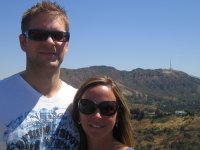Explore Lerchenreith in Austria
Lerchenreith in the region of Styria is a place in Austria - some 128 mi or ( 205 km ) West of Vienna , the country's capital city .
Time in Lerchenreith is now 11:56 AM (Saturday) . The local timezone is named " Europe/Vienna " with a UTC offset of 1 hours. Depending on your budget, these more prominent locations might be interesting for you: Praunfalk, Wald, Eselsbach, Lerchenreith, and Zell am See. Since you are here already, consider visiting Praunfalk . We saw some hobby film on the internet . Scroll down to see the most favourite one or select the video collection in the navigation. Where to go and what to see in Lerchenreith ? We have collected some references on our attractions page.
Videos
Brennesseljauche in Bad Aussee
Brennesseljauche ist ein natürliches und leichtzumachendes Düngemittel. ..
Altausseer Kiritag Sep 2007
Doris and Markus together with friends in Altaussee, the center of Austria. ..
Baden in der Traun (remake)
Erfrischung nach der Gartenarbeit an einem warmen Mai Nachmittag: Baden in der etwas kühlen Traun. Refreshing dip in the cool Traun River in Salzkammergut. ..
1. Mai Bad Aussee
Nach alter Tradition marschiert die Stadtkapelle Bad Aussee am 1. Mai durch den Ort. Dieses Jahr wählt sie zum ersten Mal die Route durch die Bahnhofpromenade. Die begeisterten Nachbaren begrüßen die ..
Videos provided by Youtube are under the copyright of their owners.
Interesting facts about this location
Ruine Pflindsberg
Ruine Pflindsberg is a castle in Styria, Austria. Around 1250 Philipp of Spanheim, the Archbishop-elect of Salzburg, occupied the Ausseerland and the Ennstal in Styria. For the coverage of his claim to power he built the small Pflindsberg castle on a hill east of the village Altaussee. 1254 he had to withdrawal and the region returned back to Styria. In the following centuries the Pflindsberg castle developed into a regional seignory with the right to hold high justice.
Located at 47.63 13.75 (Lat./Long.); Less than 3 km away
Loser (mountain)
Loser is the name of a mountain in the Ausseerland in Austria which has an elevation of 1,838 metres above sea level. The mountain is the most prominent landmark of the Ausseerland. Among the locals, it is also known as the Ausseer Ohrwaschl (Aussee Ear) because of its shape. It is possible to almost reach the peak by car by using a toll road of nine km. There is an extensive parking lot in front of the Loser Restaurant at an elevation of 1600 m, from where one can embark on various tours.
Located at 47.67 13.77 (Lat./Long.); Less than 7 km away
Hallstätter See
Lake Hallstatt or Hallstätter See is a lake in the Salzkammergut, Austria, located at {{#invoke:Coordinates|coord}}{{#coordinates:47|34|43|N|13|39|38|E| | |name= }}. Its surface is approximately 8.55 km² and its maximum depth is 125 metres. It is a popular destination for tourists, especially scuba divers.
Located at 47.58 13.66 (Lat./Long.); Less than 9 km away
Steinbrücken Cave
Steinbrücken Cave (German: Steinbrückenhöhle, "Stone bridge cave", no. 1623/204 in the Austrian Caves Register) was discovered by the Cambridge University Caving Club on the Loser Plateau in 1999. It is named after a nearby natural arch. The arch is in fact a former entrance to Traungold Cave (1623/231e) which has been developed into a convenient bivouac shelter for cave explorers. As of 2006, the cave has six entrances, has passages of 11.7 km in length and a depth of 542m.
Located at 47.69 13.82 (Lat./Long.); Less than 10 km away
Salzkammergut
The Salzkammergut is a resort area located in Austria. It stretches from the City of Salzburg eastwards along the Austrian Alpine Foreland and the Northern Limestone Alps to the peaks of the Dachstein Mountains, spanning the federal states of Upper Austria, Salzburg, and Styria. The main river of the region is the Traun, a right tributary of the Danube.
Located at 47.56 13.65 (Lat./Long.); Less than 11 km away
Pictures
Historical Weather
Related Locations
Information of geographic nature is based on public data provided by geonames.org, CIA world facts book, Unesco, DBpedia and wikipedia. Weather is based on NOAA GFS.


